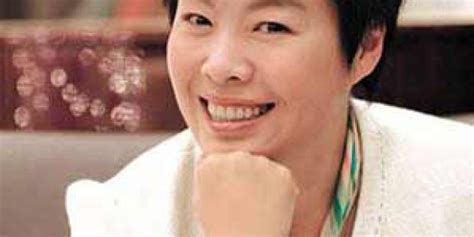A Quote by Jean Anthelme Brillat-Savarin
In the state of society in which we now find ourselves, it is difficult to imagine a nation which lived solely on bread and vegetables.
Related Quotes
Formerly, a nation that broke the peace, did not trouble to try and prove to the world that it was done solely from higher motives. ... Now war has a bad conscience. Now every nation assures us that it is bleeding for a human cause, the fate of which hangs in the balance of its victory ... No nation dares to admit the guilt of blood before the world.
It's the UK: We have to get beyond that imperialist state. I think that kind of imperialist, hierarchical, elitist state has made it easier to basically shaft everybody in the country, which it's been doing for the last thirty years. It has also sort of made it more difficult for England to fulfill its destiny, which in my mind is creating a multi-ethnic, multicultural society that is truly at the head of that post-imperial commonwealth ideal. I think that that's what England should be and that that's the kind of nation we should be.
If I am allowed to give a metaphorical allusion to the future state of the blessed, I should imagine it by the orange-grove in that sheltered glen on which the sun is now beginning to shine, and of which the trees are at the same time, loaded with sweet golden fruit and balmy silver flowers. Such objects may well portray a state in which hope and fruition become one eternal feeling.
What Confucius tells us to focus on first is not how to bring stability to the world, but how to be the best possible version of ourselves. To "cultivate one's moral character" is the first step towards taking responsibility for the nation, and for society. Confucius and his disciples struggled hard to be "the best version" of themselves, but their aim in this was to better carry out their responsibilities to the society in which they lived.
You can find examples of how little we value ourselves everywhere you look. The signs on the front of the convenience stores where Stephen lives in Florida tell the story. Beer, ice, bread and milk are the big come-ons. The order of the words varies, but beer and ice are always two of the top four staples for sale. If we were all taking care of ourselves, wouldn't the convenience stores compete for our dollars with signs that read "Fruit, Vegetables, Bread, Milk"?
If the war is lost, the nation will also perish. This fate is inevitable. There is no necessity to take into consideration the basis which the people will need to continue a most primitive existence. On the contrary, it will be better to destroy things ourselves because this nation will have proved to be the weaker one and the future will belong solely to the stronger eastern nation [Russia]. Besides, those who remain after the battle are only the inferior ones, for the good ones have been killed.
Learn to be good readers, which is perhaps a more difficult thing than you imagine. Learn to be discriminative in your reading; to read faithfully, and with your best attention, all kinds of things which you have a real interest in,--a real, not an imaginary,--and which you find to be really fit for what you are engaged in.
Faith lived in the incognito is one which is located outside the criticism coming from society , from politics , from history , for the very reason that it has itself the vocation to be a source of criticism. It is faith (lived in the incognito) which triggers the issues for the others, which causes everything seemingly established to be placed in doubt , which drives a wedge into the world of false assurances.
Why shouldn't I be interested in politics? That is to say, what blindness, what deafness, what density of ideology would have to weigh me down to prevent me from being interested in what is probably the most crucial subject to our existence, that is to say the society in which we live, the economic relations within which it functions, and the system of power which defines the regular forms and the regular permissions and prohibitions of our conduct. The essence of our life consists, after all, of the political functioning of the society in which we find ourselves.




































